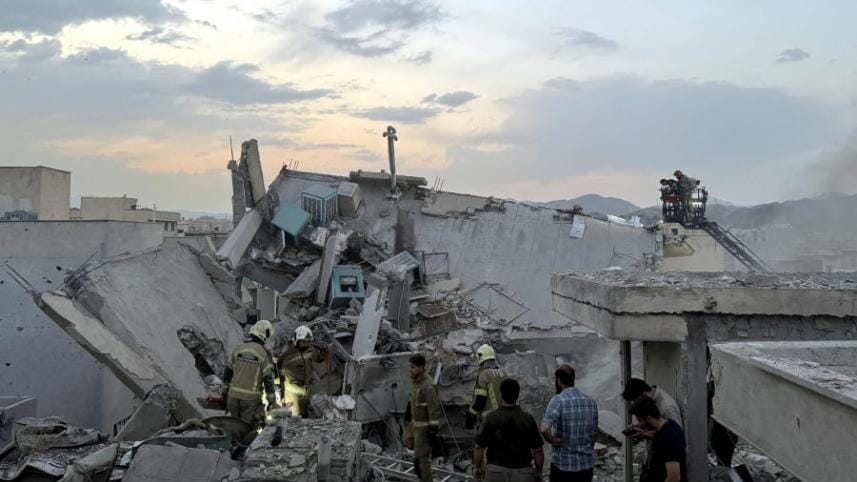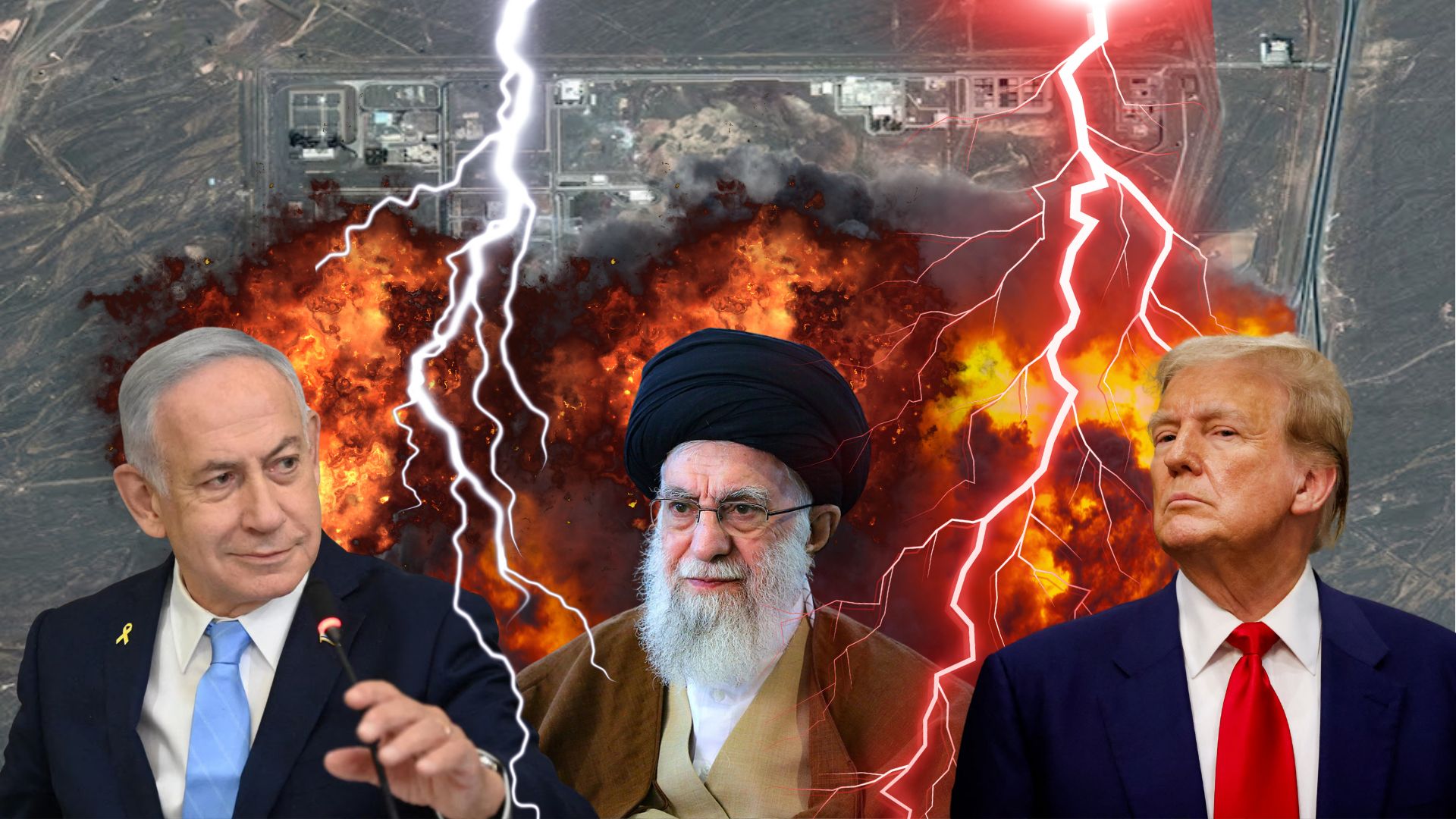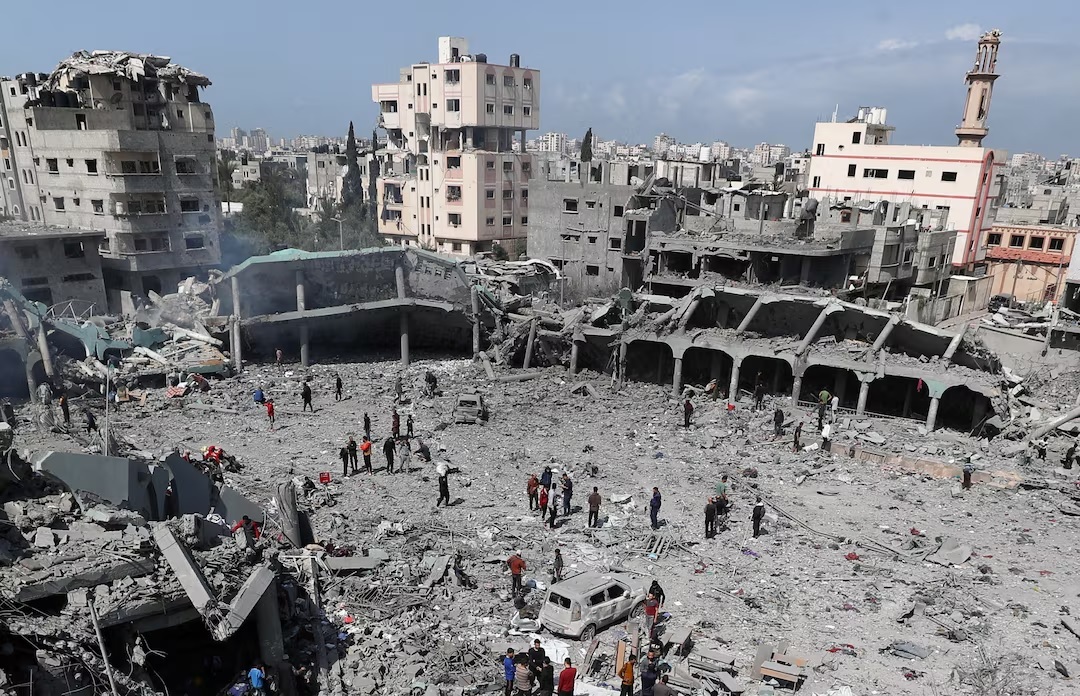How geopolitical interests trump international laws

The protracted and increasingly volatile conflict between Iran and Israel—and with the US recently entering the fray by bombing Iran—has raised profound questions and concerns regarding fundamental tenets of international law, fostering an inherently unstable environment for global relations. Ongoing discussions frequently centre on the roles of Donald Trump and the US in this intricate dynamic. International legal frameworks—notably the UN Charter and International Humanitarian Law (IHL)—delineate specific provisions governing states' use of force and the imperative protection of civilians during armed conflict.
The conflict's origins and proliferation extend far beyond a bilateral dispute, significantly impacting both regional and global power balances. Russia's and the US' indirect involvement through proxy wars, particularly influenced by the policies of the Trump administration, has further exacerbated an already complex situation. Russia, a long-standing ally of Syria and Iran, maintains its influence through arms provision and diplomatic backing. Conversely, the Trump administration's "maximum pressure" policy, coupled with unwavering support for Israel, has demonstrably heightened regional tensions. These proxy wars, while not direct military confrontations, nevertheless incite various factions and intensify existing conflicts.
On June 18, Iranian Supreme Leader Ayatollah Ali Khamenei proclaimed on X (formerly Twitter), "In Haider's name, war is beginning," issuing a resounding call for severe retaliation against Israel. His invocation of "Haider"—a reference to Ali, revered as the first Imam of Shia Muslims—underscored his statement: "We must respond harshly to the terrorist Zionist regime. We will show no mercy to Zionists." Concurrently, Israel's increasingly aggressive posture further intensifies the escalation. In this dire scenario, ordinary citizens in both nations endure immense suffering—a situation utterly unacceptable and a clear violation of international law.
Drone and missile deployment represents a significant facet of this conflict. Both belligerents utilise advanced drone technology and missiles capable of precise targeting. Iran's drone and missile strikes within Israel and Israel's retaliatory attacks against Iranian military and associated facilities invariably raise serious questions about transgressions of international law. IHL, which establishes rules for the protection of civilians and the conduct of military operations during armed conflict, appears to be repeatedly breached.
The UN Charter, the foundational document of international relations, exhorts member states to abstain from the threat or use of force against the territorial integrity or political independence of any state. However, when a state conducts military operations within another state's territory, it frequently violates Article 2(4) of the UN Charter. Both Israel and Iran are demonstrably failing to uphold this principle during their military operations against each other—as did the US when it bombed Iran.
A fundamental principle of international law is state sovereignty and non-interference in internal affairs. When superpowers such as Russia and the US indirectly fuel the Iran-Israel conflict, they also infringe upon this basic tenet. Supporting one side through arms supplies, military training, or financial aid constitutes an intervention in another state's sovereignty. Under the International Court of Justice (ICJ) and the UN Charter, every state possesses an obligation not to interfere in another state's internal affairs.
The laws of war—commonly known as International Humanitarian Law (IHL)—are extensively violated in this conflict. Drone and missile use by Iran and Israel, especially in densely populated areas, elevates the risk of civilian casualties. IHL mandates a clear distinction between military and civilian targets. Indiscriminate attacks, where no differentiation is made between military and civilian objectives, constitute a severe violation of international law. Drone use, particularly when remotely controlled, poses ethical and legal challenges in avoiding civilian casualties. While military technology has advanced, it remains crucial that its use does not contravene core IHL principles.
Specifically, the deployment of hundreds of drones and missiles may violate the "Principle of Proportionality." This principle dictates that the military advantage gained from an operation must not be excessive relative to the harm caused to civilians or civilian property. If a drone attack causes more civilian harm than military gain, it violates this principle. Similarly, the "Principle of Necessity" states that military action is legitimate only when essential for achieving a military objective and when no less harmful alternative exists. Extensive drone attacks, especially if they cause damage to civilian infrastructure or loss of life, could violate this principle. Another crucial aspect of international law involves "War Crimes" and "Crimes Against Humanity." If any party intentionally targets civilians, destroys civilian infrastructure, or commits serious IHL violations, it could be considered a war crime. Individuals and states can be held accountable for such crimes.
Russia's and America's proxy wars pose a palpable threat to international peace and security. Under Article 1(1) of the UN Charter, the UN's primary purpose is to maintain international peace and security. When superpowers incite conflicts in other regions for geopolitical interests, it negatively impacts global peace and stability, complicating regional conflicts and rendering resolution more difficult. Furthermore, such conflicts can encourage nuclear weapons proliferation and the use of other destructive arms, posing a grave threat to humanity.
The UN Security Council's role is questionable in this context. The permanent members' (the US and Russia) veto power is often utilised to protect their geopolitical interests, hindering the application of international law. When a conflict clearly violates international law, the UN Security Council should act impartially and hold the responsible parties accountable. But in proxy wars, due to superpower interests, it often fails to take effective action, undermining the credibility of the international justice system.
The 1949 Geneva Conventions and their Additional Protocols ensure civilian protection during wartime. These laws prohibit attacks on civilian homes, hospitals, schools, and religious sites, excluding military installations. Drone and missile attacks often lack accurate targeting, leading to accidental strikes on civilian areas and causing numerous innocent casualties. This can amount to a war crime.
The Iran-Israel conflict in 2025, with Russia's and the US's proxy war contributions (and now the US' direct involvement via the bombing of Iran's nuclear facilities), challenges several fundamental international law principles. Civilian targeting, sovereignty violations, and other potential IHL breaches have complicated this conflict, demanding a clear and firm response from the international community to uphold the rule of international law and prevent future conflicts of this nature.
Why are major powers failing to take effective action to stop this conflict? Several reasons exist. Firstly, Russia and the US both prioritise their geopolitical interests in the region. They do not want rivals to gain strength, so they support Iran or Israel to maintain their spheres of influence. Secondly, a complex game of power balance is being played in international politics, where major powers avoid direct conflict, using proxy wars as a strategy. Thirdly, international organisations such as the UN are often unable to take effective action due to the major powers' veto power. If a major power vetoes a UN Security Council resolution, it cannot pass, which is a significant obstacle to maintaining international peace and security.
In this ongoing situation, serious questions have arisen about how effectively international law can maintain peace and security. How can the international community overcome these geopolitical obstacles to ensure adherence to international law and protect innocent civilians?
Atiqur Rahaman is a legal researcher and human rights activist. He can be reached at atiqurrahaman515@gmail.com.
Views expressed in this article are the author's own.
Follow The Daily Star Opinion on Facebook for the latest opinions, commentaries and analyses by experts and professionals. To contribute your article or letter to The Daily Star Opinion, see our guidelines for submission.




 For all latest news, follow The Daily Star's Google News channel.
For all latest news, follow The Daily Star's Google News channel. 

Comments